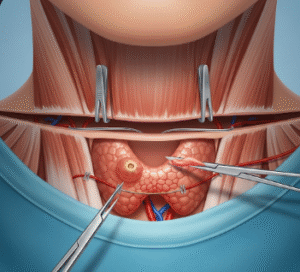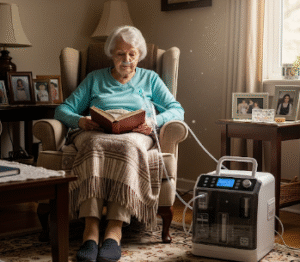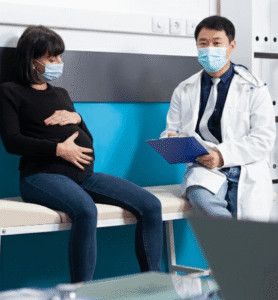➤ Overview
A stomach ache, medically known as abdominal pain, is a common symptom characterized by discomfort, cramping, or pain in the abdominal region. It can range from mild, temporary pain to severe, persistent discomfort, sometimes indicating underlying gastrointestinal or systemic conditions.
In South Korea, stomach aches are evaluated by gastroenterologists, pediatricians, and general practitioners using clinical examination, imaging, and laboratory tests to determine the cause. Early evaluation ensures appropriate treatment, prevention of complications, and relief from discomfort.
➤ Key Facts
→ Stomach aches affect all age groups, from children to older adults.
→ Causes range from mild dietary issues to serious medical conditions such as appendicitis or ulcers.
→ In Korea, evaluation may include ultrasound, endoscopy, blood tests, and stool analysis.
→ Pain location, severity, and associated symptoms are key to diagnosis.
→ Lifestyle factors, such as diet, stress, and physical activity, can influence abdominal discomfort.
→ Persistent or severe abdominal pain may indicate emergency conditions requiring urgent medical attention.
→ Early management and lifestyle adjustments can prevent recurrence and improve digestive health.
➤ What is a Stomach Ache?
A stomach ache refers to any form of pain, discomfort, or cramping in the abdominal area. It can be classified based on duration, location, and cause:
→ Acute stomach ache – Sudden onset, often short-lived, caused by infection, indigestion, or food poisoning.
→ Chronic stomach ache – Persistent or recurrent, possibly due to ulcers, irritable bowel syndrome (IBS), or other gastrointestinal disorders.
→ Localized pain – Confined to a specific area, such as the upper abdomen (stomach), lower abdomen, or sides.
→ Diffuse pain – Spread across the abdomen, often due to systemic conditions or generalized irritation.
→ Functional pain – Pain without identifiable structural abnormalities, often related to stress or motility disorders.
Korean doctors carefully assess pain characteristics, timing, triggers, and accompanying symptoms to determine the underlying cause.
➤ What Symptoms are Related to Stomach Ache?
Stomach ache may present alone or with associated symptoms, depending on the underlying cause:
→ Cramping or dull ache in the abdomen.
→ Bloating or abdominal distension.
→ Nausea or vomiting.
→ Diarrhea or constipation.
→ Loss of appetite or feeling full quickly.
→ Fever or chills, suggesting infection.
→ Blood in stool or vomit, indicating possible gastrointestinal bleeding.
→ Fatigue, dizziness, or dehydration in severe cases.
➤ What Causes / Possible Causes?
Stomach aches can arise from digestive, systemic, or external factors:
→ Gastrointestinal infections – Viral, bacterial, or parasitic infections causing inflammation.
→ Indigestion or overeating – Temporary discomfort due to heavy meals.
→ Food intolerance or allergies – Lactose intolerance, gluten sensitivity, or food poisoning.
→ Irritable bowel syndrome (IBS) – Functional bowel disorder causing recurrent pain and altered bowel habits.
→ Gastritis or ulcers – Inflammation or erosion of the stomach lining.
→ Appendicitis – Pain typically starting near the belly button, moving to the lower right abdomen.
→ Gallstones or kidney stones – Causing localized severe pain.
→ Constipation – Difficulty passing stools leading to cramping and bloating.
→ Menstrual-related pain – In women, abdominal cramps during menstruation.
→ Stress and anxiety – Triggering functional abdominal discomfort.
➤ When Should I See My Doctor?
Medical evaluation is essential if stomach ache is severe, persistent, or associated with alarming symptoms:
→ Severe, sudden abdominal pain.
→ Pain accompanied by fever, vomiting, or diarrhea.
→ Blood in stool, vomit, or black/tarry stools.
→ Persistent pain lasting more than a few days.
→ Unexplained weight loss or loss of appetite.
→ Pain with swelling, tenderness, or rigidity of the abdomen.
→ Recurrent pain interfering with daily life or sleep.
→ Associated systemic symptoms – Dizziness, fainting, or signs of dehydration.
➤ Care and Treatment
Treatment depends on underlying cause, severity, and patient age:
→ Hydration – Drinking fluids to prevent dehydration.
→ Dietary adjustments – Avoiding spicy, fatty, or irritant foods; increasing fiber intake if constipation is present.
→ Over-the-counter medications – Antacids, anti-gas, or mild pain relievers for temporary relief.
→ Prescription medications – Antibiotics, proton pump inhibitors, or antispasmodics if indicated.
→ Rest and stress management – Reducing physical and emotional triggers.
→ Monitoring symptoms – Keeping track of pain patterns, triggers, and associated features.
→ Hospital care – For acute severe pain, surgical conditions, or persistent infections.
➤ Treatment Options in Korea
South Korea offers comprehensive care for stomach aches, combining diagnostic precision, medical therapy, and lifestyle guidance:
Diagnosis in Korea
→ Clinical examination – Abdominal palpation, history, and symptom assessment.
→ Laboratory tests – Blood count, liver and kidney function, infection markers.
→ Imaging – Ultrasound, X-ray, or CT scan for structural evaluation.
→ Endoscopy – For chronic pain, suspected ulcers, gastritis, or bleeding.
→ Allergy or food intolerance tests – Identifying triggers for recurrent abdominal discomfort.
Medical Treatments in Korea
→ Medications – Proton pump inhibitors, H2 blockers, antibiotics, anti-spasmodics, or antiemetics as appropriate.
→ Dietary counseling – Tailored plans for constipation, IBS, or reflux management.
→ Hydration and lifestyle education – Stress management, exercise, and sleep optimization.
Advanced Therapies in Korea
→ Minimally invasive surgery – For appendicitis, gallstones, or other structural causes.
→ Multidisciplinary care – Gastroenterologists, dietitians, and pediatric specialists for complex or chronic cases.
→ Integrative approaches – Korean traditional medicine or acupuncture to relieve chronic pain and improve digestion.
Rehabilitation & Support in Korea
→ Education on long-term bowel health, dietary habits, and preventive care.
→ Monitoring for recurrent or chronic abdominal discomfort.
→ Support for children or adults with functional gastrointestinal disorders to maintain quality of life.













